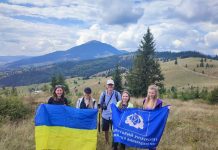People living with Long Covid (LC) say they face significant barriers in accessing healthcare services, leaving many with a feeling of hopelessness and neglect, a new study has revealed.
An estimated 2.2 million people in the United Kingdom have self-reported LC, but researchers say many are not getting the help they feel they need.
The study found that Some people with LC were not able to get through to primary care and were not able to secure a GP appointment.Many were able to access primary care but did not receive (perceived) adequate support from either their GP or secondary care
Some people self-managed symptoms rather than accessing mainstream health care services while a few people had to be extremely persistent to get through to the right healthcare professional and receive support.
A small number of people had positive experiences.
Additionally, it was found that some ethnic minority participants expressed ‘medical mistrust’ in services and there was a severe lack of access to specialist clinics – only 1/40 participants had access to a LC clinic
Long Covid is a rapidly emerging medical condition that first drew headlines nationally and internationally in 2020.
In the early stages of the pandemic, many medical professionals and patients reported being neglected or disbelieved about their persisting COVID-19 symptoms.
Symptoms of LC include breathlessness, fatigue, cough, fever, neurological symptoms, such as loss of taste and smell and brain fog, skin rash and chest pain.
Yet researchers say there is dwindling public attention towards the condition as the national focus moves away from Covid.
As part of the study, between November 2021 to March 2022, 40 interviews were conducted with people living with LC in Bradford alongside 12 interviews with healthcare professionals (HCPs) providing LC support in Bradford healthcare settings.
Participants were drawn from the Born in Bradford (BiB) cohort, which tracks the health and wellbeing of over 13,500 children and their parents over time, and more widely from the Bradford community.
Of the people with LC, 75% were from ethnic minority backgrounds and largely drawn from deprived areas.
The researchers used in-depth, semi structured interviews which allowed people to share the lived experiences and challenges of having LC.
Dr Sarah Baz, a Research Fellow in the Department of Health Sciences at the University of York, said: “We hope our study will help amplify the voices of the estimated 2.2 million people suffering from Long Covid and bring further public attention to the barriers people face to accessing healthcare support for the condition.”
“We need more investment in LC healthcare support, improved access to services and greater recognition for the condition. We must also address mistrust in healthcare services amongst ethnic minorities to provide them better support.”







